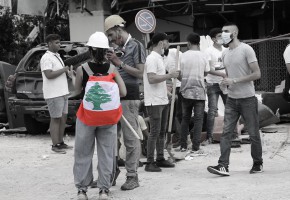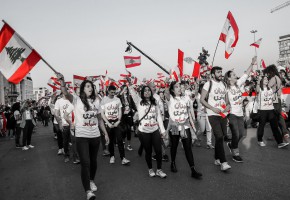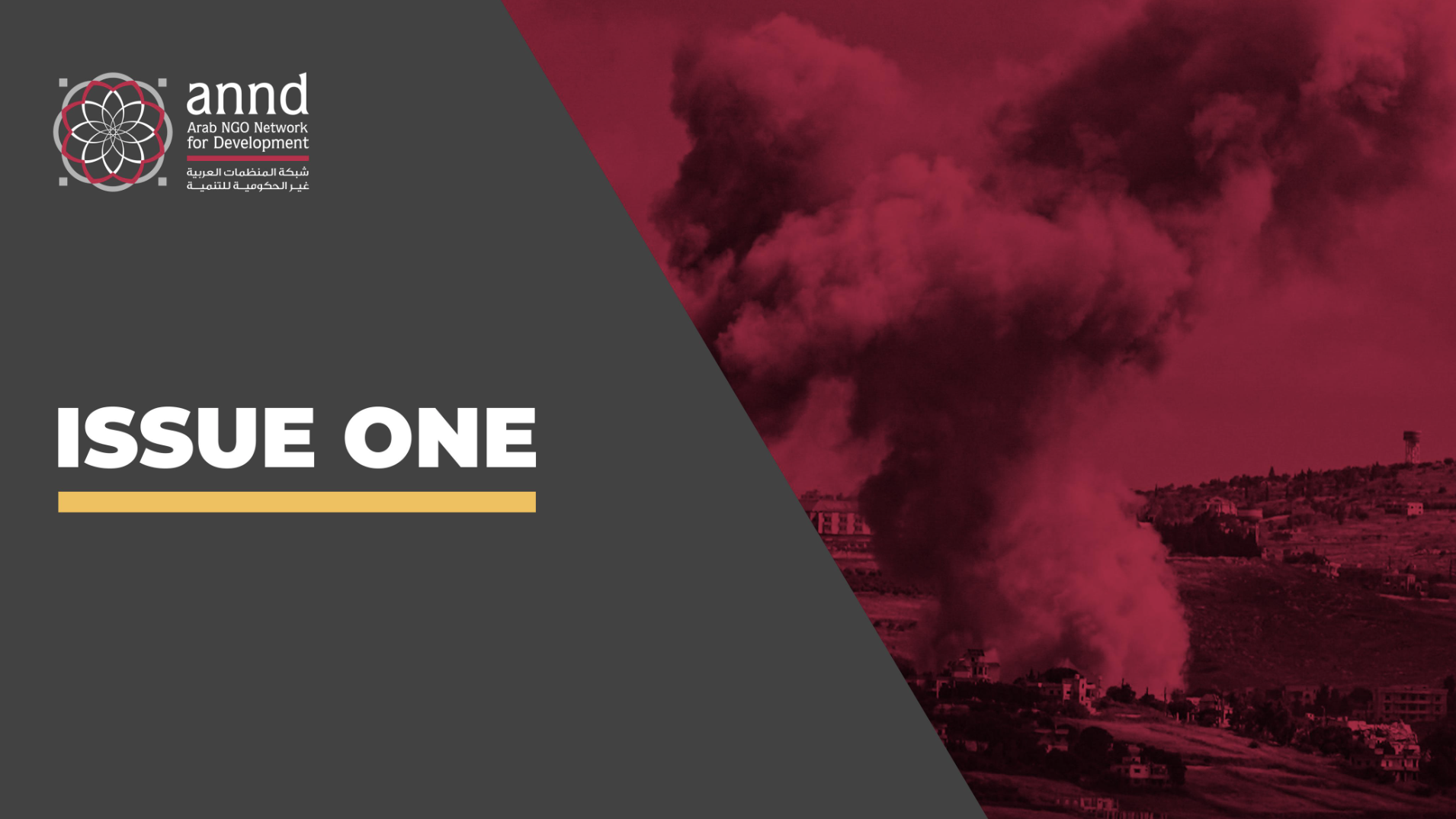
A Region on Fire - Issue One
Issue One - September 27,2024
Highest Daily Death Toll in the Country Since 1975-1990 Civil War
The daily violations committed by Israel against Lebanon through the "Northern Arrows" operation constitute a breach of international humanitarian law, particularly the wave of violence that began on Monday, September 23, targeting densely populated areas. The death toll and number of injuries were horrifying within a few days, causing significant property damage and the displacement of thousands of citizens from southern Lebanon, the Beqaa, and other regions subjected to intense bombing.
On the fifth day of the operation, 51 people were killed, 223 were injured, and 2,500 citizens were displaced. Israel did not differentiate between military targets and civilians during these attacks, resulting in the destruction of hundreds of homes, businesses, and farms, as well as damage to "hospitals, medical centers, and ambulances."
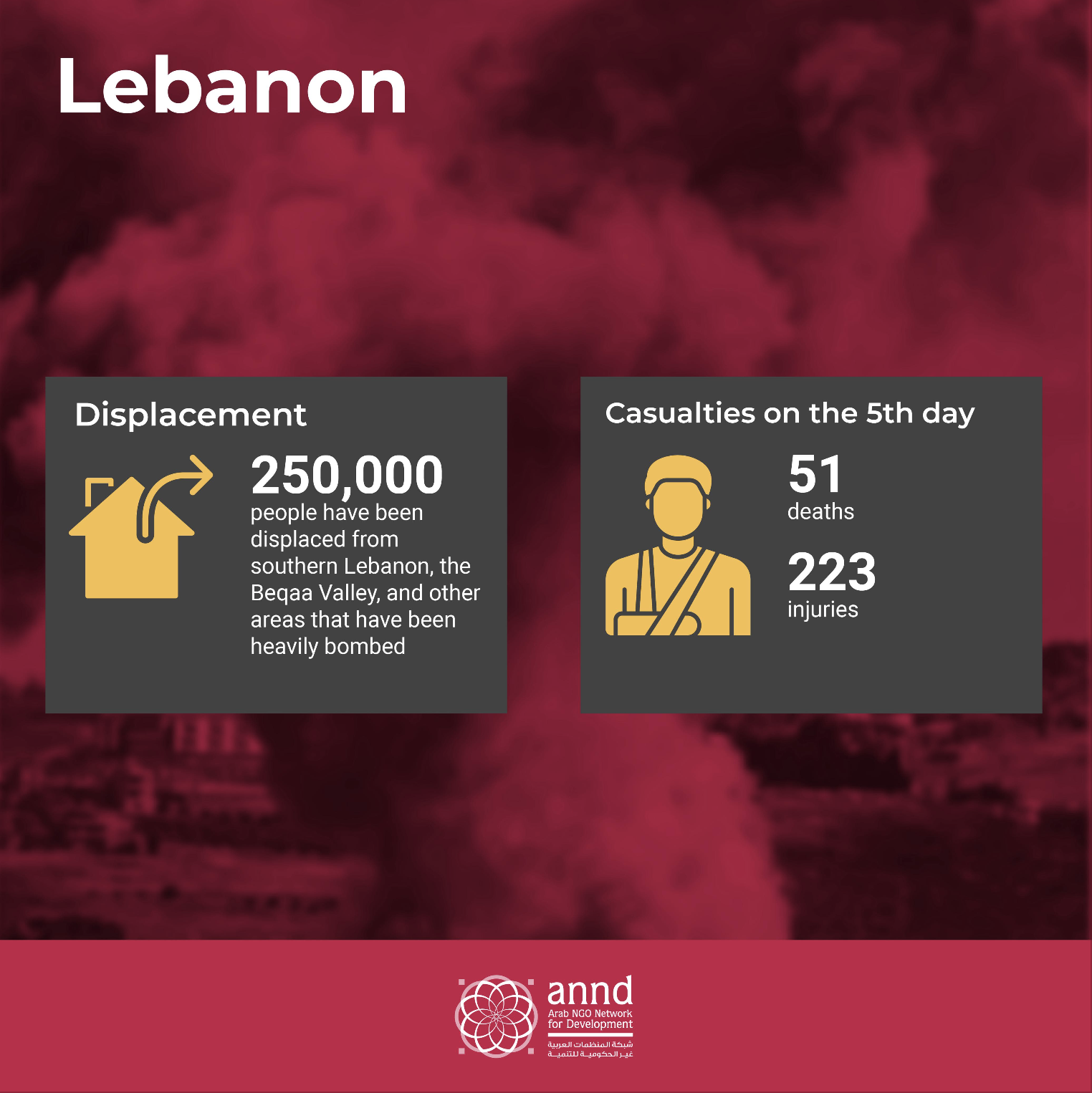
Main International Responses
There has been a concerted international effort to contain the situation in Lebanon, fearing it might escalate into a full-scale war that could devastate the region. The UN Security Council convened in an emergency session, called by France, following the most intense Israeli bombing campaign since October. The UN Secretary-General urged all parties to halt the killing and destruction, de-escalate their discourse, and reduce threats.
Positions varied during the session. Algeria considered what Lebanon is facing as part of Israel’s escalating policy, while France warned of escalation and expressed solidarity with Lebanese civilians, emphasizing the importance of a diplomatic solution. The United States stressed that the situation must end with a comprehensive agreement concerning the Blue Line (the border between Lebanon and Israel) with real implementation mechanisms. This position was asserted by the U.S. and French presidents in a joint statement on Wednesday evening.
Subsequently, a joint statement was issued by 10 countries: Qatar, Australia, Canada, the European Union, France, Germany, Italy, Japan, Saudi Arabia, the UAE, the UK, and the U.S., calling for a "21-day ceasefire along the Lebanese-Israeli border to seek a diplomatic settlement in line with UN Security Council Resolution 1701, leading to the immediate implementation of UN Security Council Resolution 2735 regarding the ceasefire in Gaza."
The EU’s foreign policy chief, Josep Borrell, had previously warned on Monday, September 23, that the raging conflict between Israel and Hezbollah threatens to plunge the entire Middle East into a "full-scale war."
Lebanese Political Positions
Lebanese political positions closely followed the continued Israeli aggression on Lebanon. Notable stances include:
- Lebanese Prime Minister Najib Mikati emphasized the importance of implementing Resolution 1701 and UNIFIL’s contribution to maintaining stability in southern Lebanon during his meeting with UN Secretary-General António Guterres in New York.
- Speaker of the Parliament Nabih Berri stated that Lebanon’s proposed ceasefire is based on the fundamental principle of a simultaneous cessation of hostilities in Lebanon and Gaza.
- Foreign Minister Abdallah Bou Habib stressed the need to adhere to Resolution 1701, which is essential for maintaining security between Lebanon and Israel.
- Samir Geagea, head of the Lebanese Forces party, requested the Speaker of Parliament to call for a session to elect a president, arguing that constitutional deadlock serves Lebanon’s enemies, primarily Israel.
- Former Minister Walid Jumblatt stated that Israel is not interested in the U.S. administration’s efforts to calm the situation.
- Sami Gemayel, head of the Kataeb party, urged Hezbollah to immediately halt its "Support Front" before the catastrophe worsens, stressing that Lebanese lives are not a bargaining chip. He affirmed that no party has the right to drag all of Lebanon into war unilaterally.
- Senior Shiite cleric Sheikh Ahmad Qabalan stated that the priority now is protecting Lebanon as an entity, rather than engaging in political squabbles.
National Humanitarian Response
The humanitarian response has primarily been led by individual initiatives and efforts from some political parties and movements, despite the National Committee for Coordinating Disaster and Crisis Risk Management having drafted a national emergency plan in October 2023. As the aggression began, the committee announced the opening of public schools and vocational institutes for displaced persons. To date, shelters have hosted 52,900 people, representing about 30% of the displaced, suggesting that most of the displaced, around 175,000, still fall short of the plan’s capacity to accommodate 200,000 out of an estimated one million displaced persons.
The shelters that were opened were ill-prepared, lacking essential needs such as “mattresses and blankets,” drinking water, and even basic sanitation in schools. Moreover, there was a shortage of food supplies and infant formula.
It is also worth mentioning that civil defense is currently operating at only 40% of its capacity due to the need for maintenance of vehicles, as well as the ongoing economic crisis. Additionally, the current wheat stock is only sufficient to meet market needs for a short time if a full-scale war erupts. On the health front, the ministry has implemented a comprehensive, multi-faceted plan since the war on Gaza began, focusing first on training health teams, including how to handle a large number of health cases and manage mass casualties during crises.
Recent publications
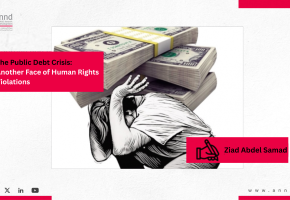
The Public Debt Crisis: Another Face of Human Rights Violations – Ziad Abdel Samad
Related publications
